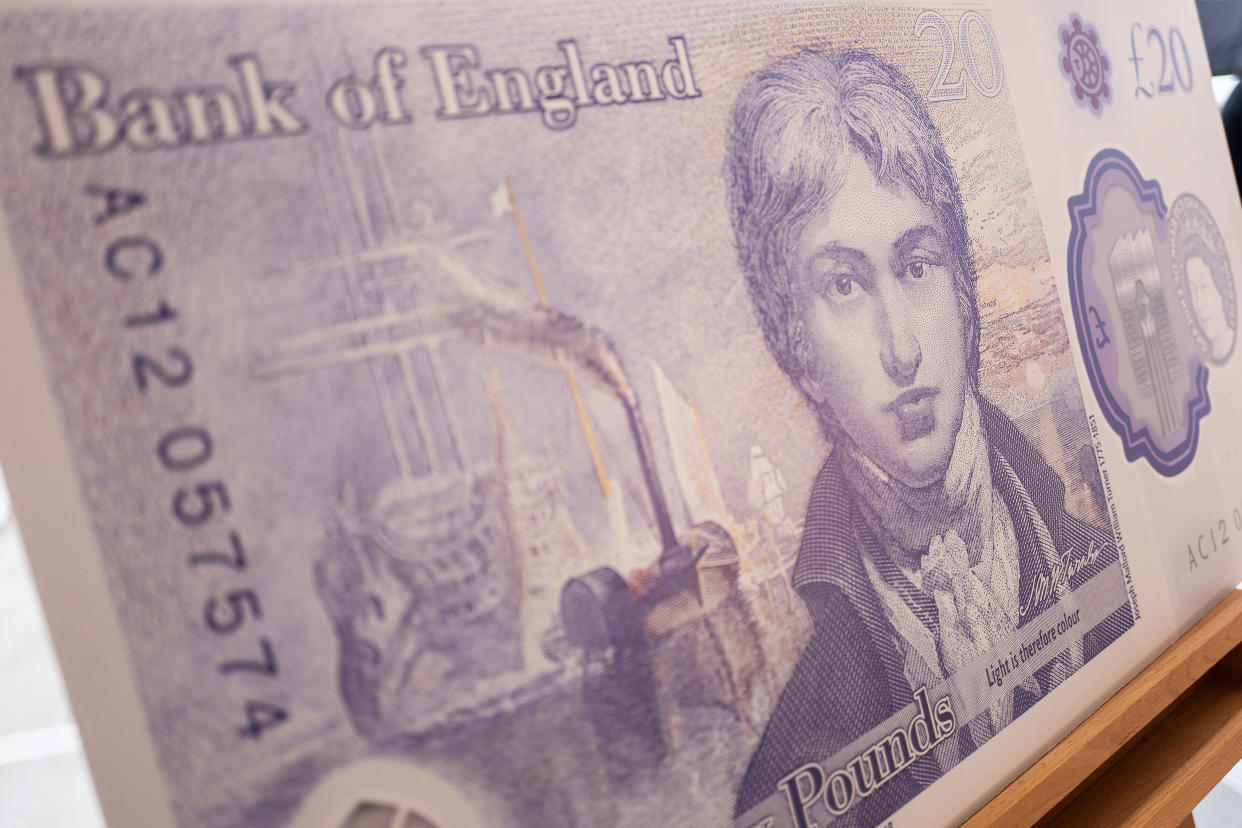New polymer £20 notes going into circulation today

The Bank of England will release the new polymer £20 note featuring artist JMW Turner into general circulation on Thursday.
It will replace the current £20 note, which features noted economist Adam Smith.
Both notes will be accepted as legal tender for a period of time before the old one is withdrawn. The Bank of England has not yet announced when the old note will be discontinued but will give a notice period of at least six months.
READ MORE: Survey shows Scottish bank notes widely seen as “fake”
The Bank of England is calling it “the most secure bank note yet,” with two windows and a two-colour foil to thwart fraudsters.
The note also contains a “tactile feature” to help vision-impaired people identify it.
Collectors are already clamouring for early and rare serial numbers, which could end up worth a small fortune.
READ MORE: 1.5bn worth of outdated £5 and £10 notes haven't been returned
The Bank of England has confirmed that some AA notes will definitely be entering circulation. When the new plastic £5 entered circulation in September, those with the rare AA 01 serial number sold for hundreds of pounds online.
Meanwhile, a AH 17 75 serial number sold for a whopping £3,600 as it featured the date Jane Austen, who appears on the back of the note, was born.
“The introduction of this new £20 note is a great step to cutting down on fraud which is a thorn in the side of small firms,” said Mark Cherry, national chairman of the Federation of Small Businesses (FSB).
READ MORE: What your bank notes would look like if women were the face of them
“As the most common note in circulation, small firms will be pleased to see the money they are working with is going to become safer and more secure. This will mean that small businesses can spend time and money on other issues away from fraud.”
He added: “Around a quarter of all high street transactions for small firms is carried out using cash which is why a continued investment in the safety and security of cash is so important.
“More than 10% of small firms are already enacting anti-fraud measures in a bid to cut down on traditional business crime and this move that will go some way to helping businesses.”

 Yahoo Movies
Yahoo Movies 
